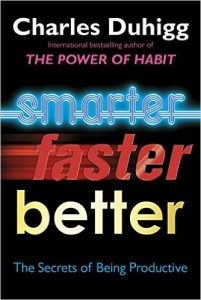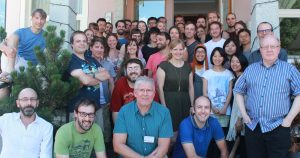I read “Smarter, faster, better” by Charles Duhigg over the summer (which is a bit ironic given that I had other goals in mind other than finding “The secrets of being productive”). The book is a bit of a hodgepodge of research on productivity with each chapter covering a different topic (e.g., motivation, bayesian forecasting, team work). The most interesting chapter, I found, was the one on team performance, in which Duhigg gave an overview of research done at Google. You can read a version of his account from a piece of his in the New York Times or an overview from Google directly.
I found it particularly interesting that Google’s People Analytics team (aka HR) went through a lot of work to gather objective and subjective measures of performance, social interactions, and much more to gather a comprehensive view on teams’ composition, work, and output. Yet, they had a hard time finding important predictors of team productivity, in particular, concerning those factors that would be most intuitive, such as the individual performance of each team member, their personality, or decision-making styles. Rather, team members’ “feeling safe to take risks and be vulnerable in front of each other” seemed to matter most. This work is somewhat in line with a study by Woolley et al. (2010) showing that group productivity is a function of social rather than individual intelligence:
“Psychologists have repeatedly shown that a single statistical factor—often called “general intelligence”—emerges from the correlations among people’s performance on a wide variety of cognitive tasks. But no one has systematically examined whether a similar kind of “collective intelligence” exists for groups of people. In two studies with 699 people, working in groups of two to five, we find converging evidence of a general collective intelligence factor that explains a group’s performance on a wide variety of tasks. This “c factor” is not strongly correlated with the average or maximum individual intelligence of group members but is correlated with the average social sensitivity of group members, the equality in distribution of conversational turn-taking, and the proportion of females in the group.”
Anyway, if you’re looking to improve your team’s productivity, Google suggests that this tool could help!

